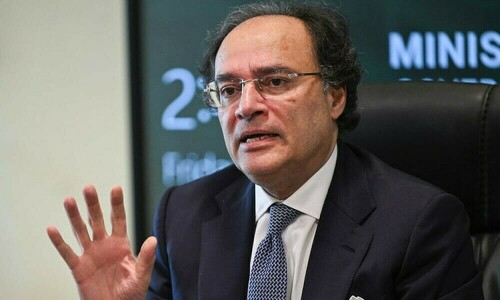Pakistan Seeks Expansion of Currency Swap Line with China
Pakistan has formally requested China to increase its existing currency swap facility by 10 billion yuan, equivalent to $1.4 billion, according to Finance Minister Muhammad Aurangzeb. He also indicated that the country intends to introduce a Panda bond before the close of the year.
Aurangzeb, speaking to Reuters during the International Monetary Fund and World Bank Group meetings in Washington, noted that Pakistan already possesses a 30 billion yuan swap line.
“Our aim is to elevate this to 40 billion renminbi… we have officially submitted the request,” Aurangzeb stated.
China’s monetary authority has been actively encouraging currency swap arrangements with various developing nations, such as Argentina and Sri Lanka.
Pakistan has also achieved advancement in the issuance of its inaugural panda bond – a debt instrument issued within China’s domestic bond market and denominated in yuan. He conveyed that discussions with the heads of the Asian Infrastructure Investment Bank (AIIB) and Asian Development Bank (ADB), the institutions poised to provide credit enhancements for the issuance, have been productive.
Economic Reforms and Global Support
“We are focused on diversifying our sources of financing and have seen encouraging progress. We anticipate conducting an initial offering within this calendar year,” he commented.
Aurangzeb anticipates the IMF executive board’s approval in early May regarding the Staff Level Agreement on the newly established $1.3 billion arrangement, which falls under a climate resilience loan program. This also includes the initial review of the ongoing $7 billion bailout initiative.
Securing endorsement from the IMF board would activate a $1 billion disbursement under the program, which Pakistan obtained in 2024 and has been crucial in bolstering the nation’s economy.
When questioned about the potential economic repercussions arising from tensions with India after the deaths of 26 individuals at a tourist site earlier in the month, Aurangzeb acknowledged that it would “not be beneficial.”
Economic Growth Projections
Aurangzeb projects economic expansion of approximately 3% for the current fiscal year, concluding in June 2025, and anticipates growth in the 4-5% band for the subsequent year. The long-term objective is to achieve a growth rate of 6% subsequently.



Comments (0)
No comments yet. Be the first to comment!
Leave a Comment